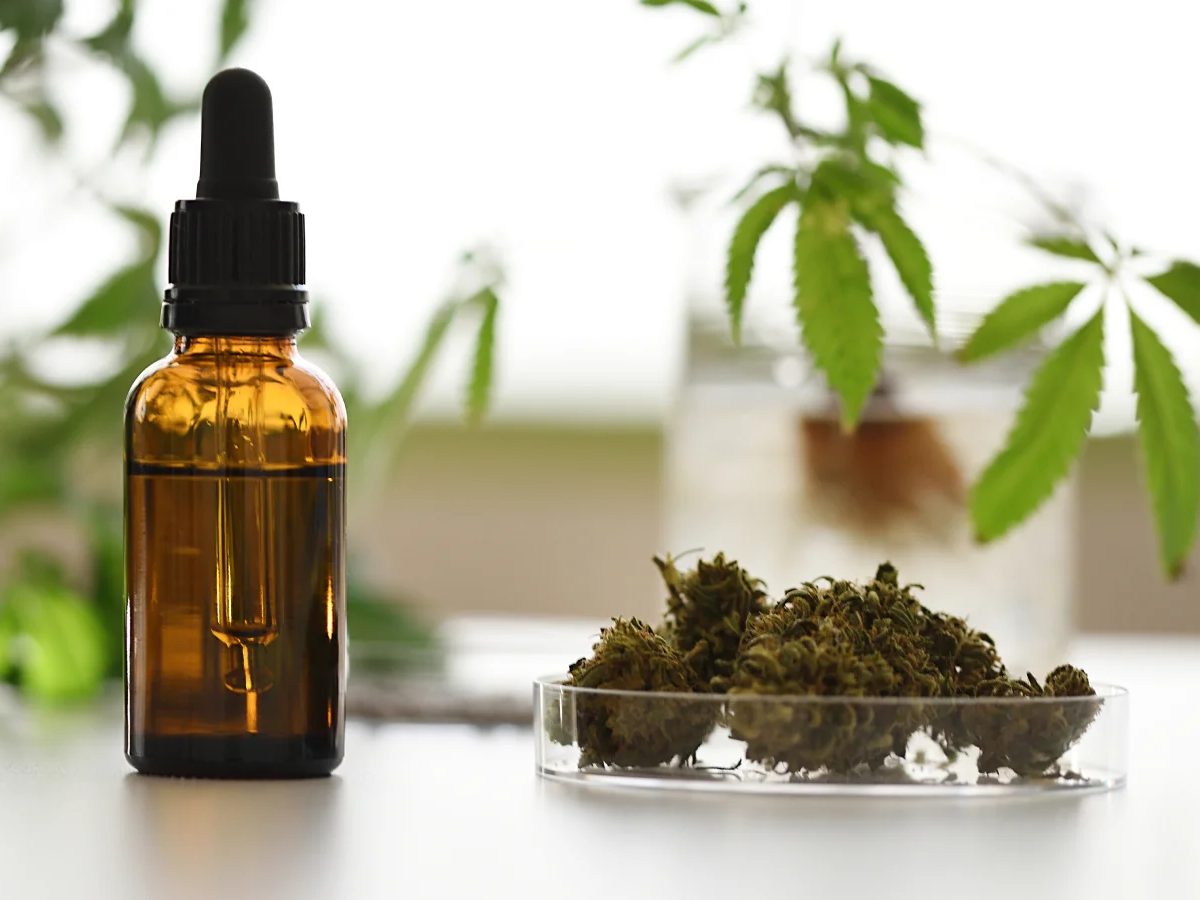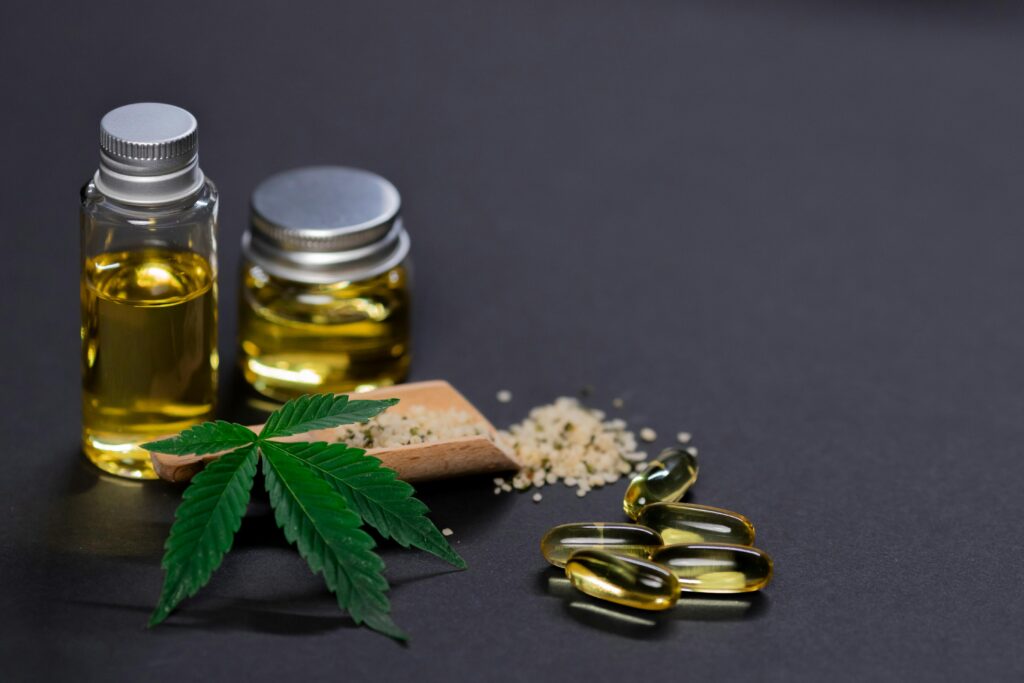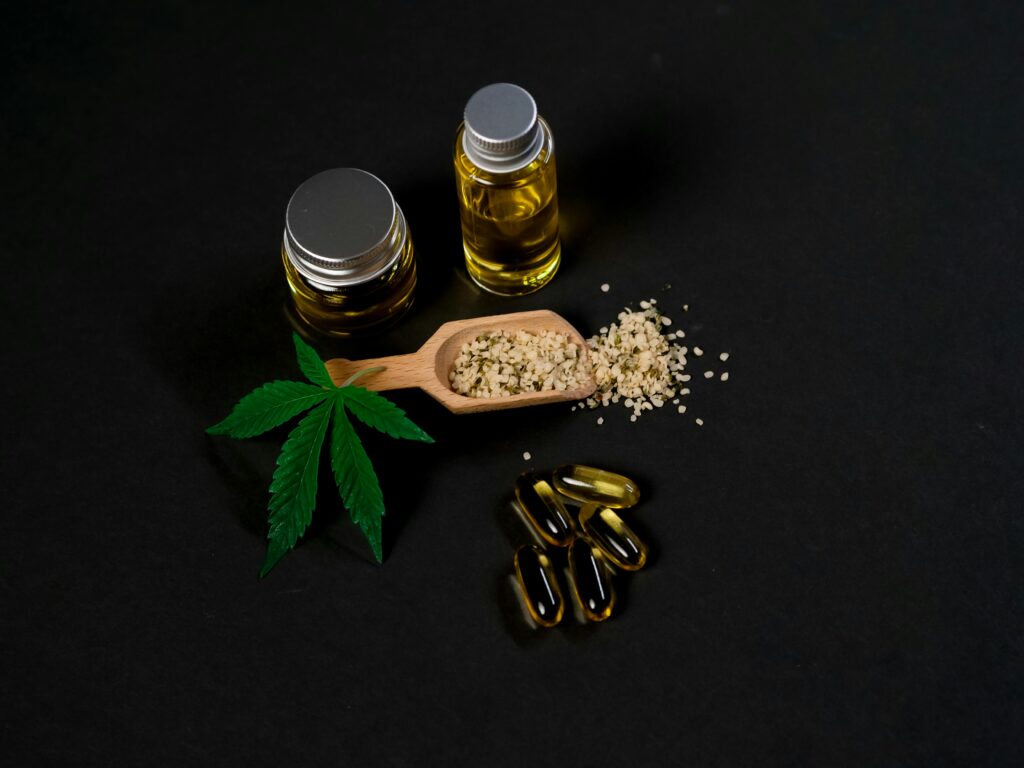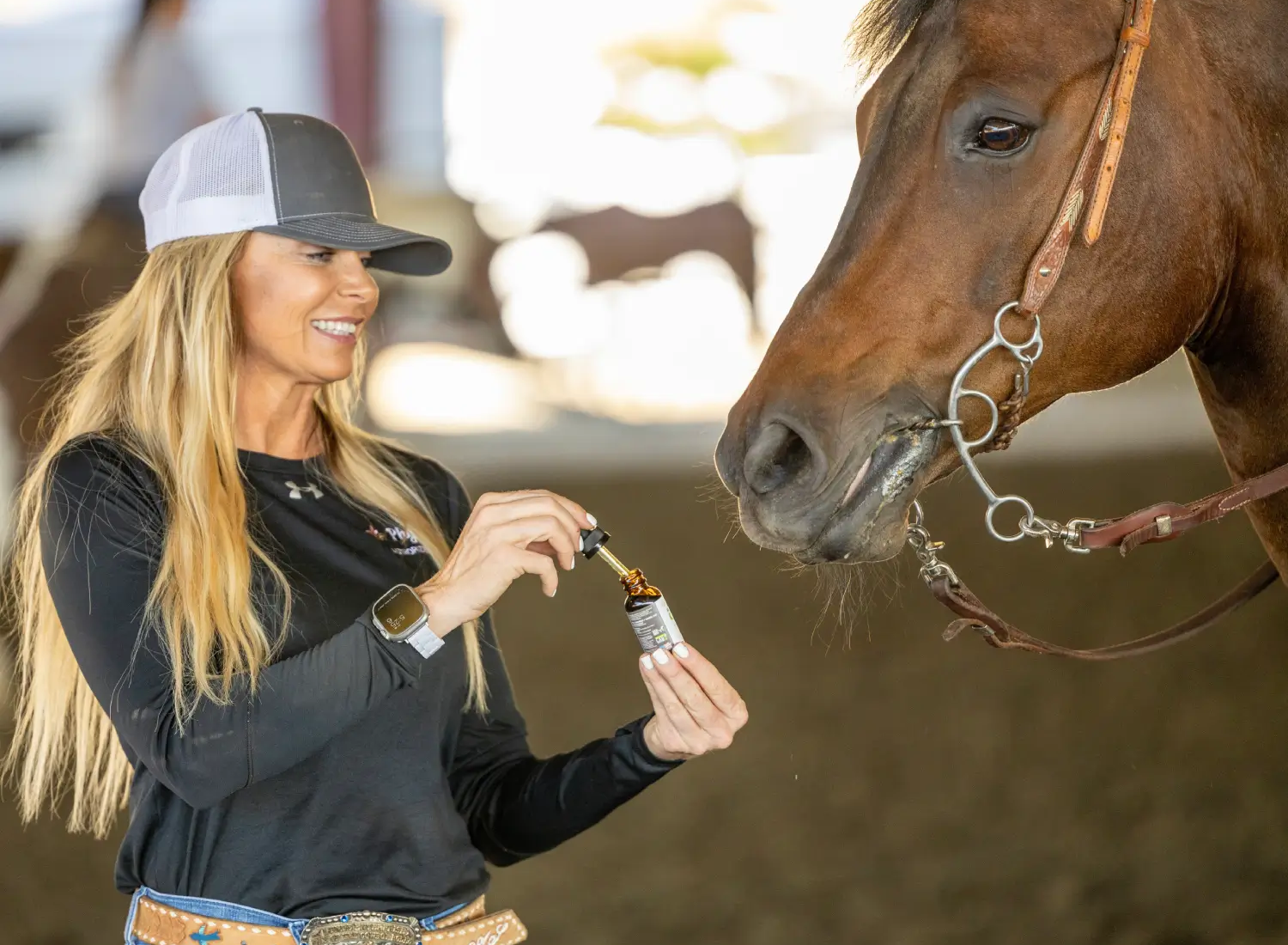
Hemp extract and CBD. You may have heard of these two terms before when talking about the cannabis plant. And, while both derive from the cannabis plant, knowing the difference between hemp extract vs. CBD is essential to having an enjoyable experience with your hemp- and cannabis-derived products.
Choose the wrong component, and you could find yourself over- or under-spending on a product that doesn’t deliver the value you expected.
Not to worry, though. The experts at PhytosanaCBD are here to help.
If you’re wondering what the difference is between hemp extract and CBD — as well as how hemp seed oil from hemp extract and CBD oil from CBD extract are used — you’ve come to the right place.
In this article, we’ll discuss:
- Hemp extract: its potential uses, how it works, how it’s made, and potential side effects, risks, & benefits
- CBD oil: its potential uses, how it works, how it’s made, and potential side effects, risks, & benefits
Grab your favorite beverage and note-taking tool, because here’s what you should know about hemp extract and CBD..
Hemp seed extract vs. CBD oil (and other CBD products)
| Cannabis derivative | Potential effects (more research is needed) |
| Cannabidiol (CBD) | 1. Some users report that CBD helps with pain, inflammation, and anxiety, though research is needed to verify these claims. 2. Other users state that CBD may also be helpful as an aid to combat depressive symptoms, though research is ongoing |
| Cannabichromene (CBN) | 1. Some consumers report experiencing relief from discomfort and pain, but more research is needed. |
| Cannabigerol (CBG) | 1. Some research suggests that CBG may help protect neurons from injury or further degradation, but the jury is still out. 2. Other research states that CBD may also help with inflammatory conditions, though CBD should not be used to diagnose, treat, cure, or prevent diseases. |
| Tetrahydrocannabinol (THC) | 1. According to research (National Academies of Sciences, Engineering, and Medicine; Health and Medicine Division, 2017), THC has often purported to help with nausea, vomiting, and inflammation. 2. Other research states that THC may also be used as a pain-relieving agent. More research is needed to verify this claim. |
A deeper dive into hemp seed oil

Hemp extract is an extract that comes from the hemp plant. As a result, hemp extract often takes the shape of hemp seed oil.
Hemp seed oil derives from the seeds of the cannabis sativa plant. This special oil contains omega-6 and omega-3 fatty acids, gamma-linolenic acids, and other antioxidant properties and nutrients.
What’s more, hemp seed oil is rich in B and D vitamins. Many people report that ingesting hemp seed oil is beneficial, but doesn’t feel like the “high” sensation that tetrahydrocannabinol (THC) often provides. Finally, hemp extract and hemp seed oil include very little cannabinol (CBD).
Potential uses of hemp oil
Often, people don’t use hemp seed oil or hemp oil for recreational purposes. If you’re looking for a high, hemp oil may not be your best bet, because psychoactive properties are limited or absent.
With that being said, many nutritional products contain hemp oil. Hemp seed oil contains high omega-3 and omega-6 fatty acids, gamma-linolenic acids, and antioxidants.
As you can imagine, products containing hemp oil can be used for all types of life — horses, humans, and even dogs!
For example, our Full Spectrum Equine CBD Oil packs a full 1,000 milligrams (mg) of CBD in each bottle. One serving contains 33 mg of powerful full-spectrum CBD, and many of our customers choose Full Spectrum Equine CBD Oil to help support their horse’s wellness.
Let’s take a look at how hemp seed oil works and how it’s made.
How hemp seed oil works and is made
While the research is ongoing, many people suggest that hemp seed oils can help improve physical health conditions. With that being said, the research is ongoing, so if you plan on using hemp seed oil, we recommend speaking with an expert first.
What we do know is that hemp seed oil is made by manufacturers who extract hemp seed oil from the seeds of hemp plants. Since hemp oil comes from the seeds — and not the leaves, flowers, or stem parts of the hemp plant — CBD oil doesn’t contain THC.
Potential side effects, risks, and benefits of hemp oil
Hemp oil offers various benefits. For example, many manufacturers add hemp oil to nutritional products, such as snack bars, breads, cookies, gummies, and more.
As such, hemp oil provides a rich source of nutrients and components that might also be beneficial for overall wellness. Some potential benefits that hemp seed oil may provide include:
- Pain relief
- Relief from inflammation
- Support with mental health and overall well-being
On the flip side, while consuming hemp seed oil is safe, hemp oil may not provide benefits for certain conditions. With that being said, consumers will want to do their research to determine if they are at risk for certain conditions if they were to ingest cannabinoids, CBD isolates, or other hemp seed-containing compounds.
We recommend checking with your trusted healthcare provider (or veterinarian, for those using CBD for their animal friends) before consuming any hemp or CBD products. Doing so will help you maximize your chances of enjoying the potential benefits of CBD and hemp seed oil.
Speaking of CBD, let’s dive a little deeper into CBD oil.
Exploring CBD oil

One of the many other oils from the cannabis plant used in food and other nutritional supplements is CBD oil. In general, three different types of CBD oil exist in today’s market:
- Full-spectrum CBD oil: this type of oil contains all parts of the cannabis plant, including levels of THC at less than 0.3%.
- Broad-spectrum CBD oil: this type of oil contains many compounds, but not THC.
- CBD isolate-derived CBD oil: this type of oil contains 99-100% CBD found in the cannabis plant.
With that being said, consumers should always check a CBD product’s certificate of analysis (COA) before making a purchase. The COA explains what the CBD product contains.
For example, we use a 3rd party to help lab test each batch of our specialty CBD offerings. Using a third party to test the quality of our products helps us deliver a product that’s all-natural, non-GMO, and 100% organic.
Before making a purchase, consider checking what ingredients the product contains, as well as how the product was made. We’ll cover how CBD oil works and is made in the sections below.
Potential uses of CBD oil
CBD oil can be used for a variety of applications. Some research has found that CBD may help relieve pain without the “intoxicating adverse effects of medical marijuana” (MayoClinicProceedings.org, 2019), which suggests that CBD may be helpful for its potential role in helping promote health and well-being.
For example, Epidiolex — a prescription FDA-approved medication — contains a purified form of CBD to treat certain seizures. As such, CBD oil-based products offer many potential therapeutic benefits for people and animals.
With that being said, research is ongoing, and the effects of THC and CBD are still under review.
Finally, CBD oils may contain smaller amounts of other phytocannabinoids and terpenes, both of which may affect the body in different ways. As such, more research is needed to verify the potential uses of CBD.
How CBD oil works and is manufactured
Research is still ongoing about how CBD affects the body, but a growing body of research suggests it may potentially affect the body in the following ways:
- Inhibiting endocannabinoid reuptake
- Increasing the activity of serotonin receptors
- Plays a role in pain relief
What’s more, researchers are still determining how CBD oil interacts with receptors and body systems, but no conclusions have been made yet.
With that being said, the effects of recreational and industrial CBD oil are still under investigation.
More research is needed to determine how CBD oil works, as well as its psychoactive effects.
With that being said, CBD oil comes from the flowers and leaves of the cannabis plant. Using extraction methods like CO₂ extraction, manufacturers can extract pure CBD oil to make tinctures and other hemp products.
For full-spectrum CBD products, all parts of the plant must be intact. Whereas with CBD isolate, CBD oil is extracted, nothing else.
Potential side effects, risks, and benefits
IIn terms of side effects, risks, and potential benefits, research suggests that hemp-derived CBD products have few side effects, though research is ongoing and subject to change.
If you’re considering purchasing or using a product that may contain CBD — or a product including hemp and marijuana — we recommend that you do your research and trust the source from which you’re purchasing products.
Alas, not every company is transparent about how they source and make their products, which can lead people to come into contact with contaminants or THC in CBD isolate and other broad-spectrum CBD products.
Given that regulations on product labeling are changing, we recommend checking for the following to ensure you’re receiving a quality product:
- Check to make sure that manufacturers don’t use solvents during CBD extraction.
- Check that the Department of Agriculture has certified the product as organic.
- Check that the label lists the potency of the product.
Finally, before trying hemp or CBD oil products, we can’t recommend enough speaking with a doctor (or veterinarian, if choosing to use the products for your animal friend) and a qualified cannabis specialist.
A professional can give you proper guidance on CBD products as well as whether CBD will interfere with or complement other medications you (or your animal friend) may be taking.
The benefits of hemp oil and CBD oil in action

Many of our partners purchase our wide selection of different CBD products for the many potential health benefits they offer their equine friends. One of those equine friends is Dry (Ella).
Here she is winning big at Valley Center’s Stampede Rodeo.
To see what top-performing Dry (Ella) looks like in action, check out this reel! You have to see it to believe it.
Hemp extract vs. CBD: Which is better?

So, hemp seed oil vs. CBD oil: which is better? The truth is that both may offer potential benefits, and both come from the same cannabis plant.
Other facts about hemp extract and CBD include the following:
- The difference between hemp oil and CBD oil is that CBD oil comes from the flower, leaves, and stems, while hemp seed oil is extracted from the seeds of the cannabis plant.
- Many people state that hemp extract and CBD don’t cause a high since CBD products tend to contain up to 0.3 percent (or less) of THC.
- For all the publicity hemp and CBD extracts and oils have produced, research is limited, and scientists continue to study the entire hemp plant for its health benefits.
So, the answer is that both hemp and CBD may provide health benefits depending on their use. Before trying a CBD or hemp-based product, we always recommend speaking with a CBD specialist, your trusted healthcare provider, and a veterinarian (in the case of dogs and horses).
If you’re curious to learn more about hemp extract, CBD, and other cannabis-based products, check out our shop.
Alternatively, we’re happy to answer any questions you might have. If you’re interested in exploring your journey with CBD and hemp further, don’t hesitate to reach out anytime. We’re all ears.
We look forward to chatting with you soon!
PhytosanaCBD: 100% All-Natural Hemp and CBD Solutions for Horses, Pets, and You!

